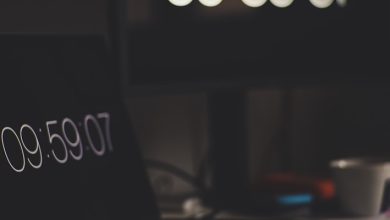What is a DAO? How Decentralized Autonomous Organizations Work

- Understanding the concept of DAOs
- The principles behind Decentralized Autonomous Organizations
- The role of smart contracts in DAO operations
- Challenges and limitations facing DAOs
- Examples of successful DAO projects
- The future of decentralized governance with DAOs
Understanding the concept of DAOs
Decentralized Autonomous Organizations (DAOs) are a novel concept in the realm of blockchain and cryptocurrency. DAOs are essentially organizations that operate without a central authority or hierarchy, relying instead on smart contracts and consensus mechanisms to make decisions. These organizations are run by code, which is stored on a blockchain and executed automatically when predetermined conditions are met.
DAOs are designed to be transparent, efficient, and autonomous. They allow for decentralized decision-making processes, where every member of the organization has a say in how things are run. This ensures that no single entity has control over the organization, promoting fairness and inclusivity.
One of the key benefits of DAOs is their ability to eliminate the need for intermediaries. By cutting out middlemen, DAOs can reduce costs, increase efficiency, and streamline operations. This can lead to greater trust among participants and a more democratic decision-making process.
However, DAOs are not without their challenges. One of the main concerns surrounding DAOs is the issue of security. Since DAOs operate on code, they are susceptible to bugs, vulnerabilities, and hacks. This can potentially lead to funds being stolen or mismanaged, putting the organization at risk.
Despite these challenges, DAOs have the potential to revolutionize the way organizations are run. By leveraging blockchain technology and smart contracts, DAOs can create a new paradigm of decentralized governance and collaboration. As the technology continues to evolve, DAOs are likely to play an increasingly important role in the future of organizations and businesses.
The principles behind Decentralized Autonomous Organizations
Decentralized Autonomous Organizations (DAOs) operate based on a set of principles that distinguish them from traditional organizations. One key principle is decentralization, which means that decision-making power is spread across all participants rather than being concentrated in a central authority. This ensures that no single entity has control over the entire organization, promoting transparency and reducing the risk of corruption.
Another important principle behind DAOs is autonomy, which refers to the ability of the organization to operate independently of human intervention. Smart contracts, which are self-executing contracts with the terms of the agreement directly written into code, are used to automate processes within DAOs. This eliminates the need for intermediaries and streamlines operations.
Transparency is also a fundamental principle of DAOs, as all transactions and decisions are recorded on a public blockchain. This allows participants to track the organization’s activities in real-time and hold it accountable for its actions. Additionally, DAOs often have open governance structures that enable members to participate in decision-making processes and vote on proposals.
The role of smart contracts in DAO operations
Smart contracts play a crucial role in the operations of Decentralized Autonomous Organizations (DAOs). These self-executing contracts are written in code and automatically enforce the terms of an agreement when predefined conditions are met. In the context of DAOs, smart contracts help facilitate transparent and trustless transactions among members without the need for intermediaries. By eliminating the need for third parties, DAOs can operate more efficiently and securely. Smart contracts also enable DAOs to automate various processes, such as voting on proposals and distributing rewards to members based on their contributions. This level of automation helps streamline decision-making and governance within the organization, making DAOs truly autonomous entities.
Challenges and limitations facing DAOs
While DAOs offer many benefits, there are several challenges and limitations that they face in practice. One major challenge is the lack of legal recognition and regulatory clarity surrounding DAOs. This can make it difficult for DAOs to enter into contracts, enforce agreements, or resolve disputes in a traditional legal framework. Additionally, the decentralized nature of DAOs can make decision-making processes slower and more cumbersome compared to centralized organizations.
Another limitation facing DAOs is the potential for security vulnerabilities and smart contract bugs. Since DAOs operate on blockchain technology, they are susceptible to hacking and exploitation if proper security measures are not in place. This can result in financial losses for DAO members and damage to the organization’s reputation.
Furthermore, DAOs may struggle with scalability issues as they grow in size and complexity. The number of transactions that can be processed on a blockchain network is limited, which can hinder the efficiency of DAO operations. As more members join a DAO, reaching a consensus on decisions can become increasingly challenging and time-consuming.
In addition, DAOs may face challenges in terms of governance and leadership. Without a clear hierarchy or centralized authority, DAOs may struggle to coordinate actions and align interests among members. This can lead to internal conflicts, power struggles, and difficulty in achieving collective goals.
Overall, while DAOs have the potential to revolutionize traditional organizational structures, they must overcome these challenges and limitations to realize their full potential. As the technology and regulatory landscape continue to evolve, DAOs will need to adapt and innovate to address these issues effectively.
Examples of successful DAO projects
Several examples of flourishing DAO projects showcase the versatility and potential of this decentralized organizational structure. One prominent instance is the DAOstack platform, which empowers users to create and manage decentralized organizations through a user-friendly interface. Another notable success story is Aragon, a project that provides tools for creating and governing decentralized organizations on the Ethereum blockchain. MolochDAO, on the other hand, focuses on funding Ethereum development projects through a decentralized decision-making process.
Aside from these examples, there are also DAO projects in the realm of art and culture. The Metacartel DAO, for instance, supports creators and artists by funding projects that align with its community’s values. Additionally, the PleasrDAO has made waves in the digital art world by pooling resources to purchase and collectively own digital artworks. These projects demonstrate the diverse applications of DAOs beyond traditional organizational structures.
Furthermore, DAOs have also been utilized in the realm of governance. The DxDAO, for example, aims to create and maintain decentralized applications for the DutchX trading protocol. This project showcases how DAOs can be leveraged for efficient decision-making and execution in complex systems. In essence, these successful DAO projects highlight the innovative ways in which decentralized autonomous organizations are reshaping various industries and sectors.
The future of decentralized governance with DAOs
Decentralized Autonomous Organizations (DAOs) represent a promising future for governance in various sectors. As blockchain technology continues to evolve, DAOs have the potential to revolutionize how decisions are made and implemented within organizations. By utilizing smart contracts and automated decision-making processes, DAOs can operate with increased transparency and efficiency.
One of the key advantages of DAOs is their ability to eliminate the need for centralized control and intermediaries. This decentralized approach empowers members of the organization to participate in decision-making processes directly, without the need for third-party oversight. As a result, DAOs can operate more autonomously and democratically, allowing for greater inclusivity and collaboration among stakeholders.
Furthermore, DAOs offer a level of security and trust that is unparalleled in traditional governance structures. By leveraging blockchain technology, DAOs can ensure that all transactions and decisions are recorded immutably on the blockchain, providing a transparent and tamper-proof record of all activities. This level of transparency can help to mitigate issues such as fraud and corruption, ultimately building trust among members of the organization.
In conclusion, the future of decentralized governance with DAOs is bright. As more organizations recognize the benefits of this innovative approach to decision-making and governance, we can expect to see a shift towards more transparent, efficient, and democratic systems of operation. By embracing DAOs, organizations can unlock new opportunities for collaboration, innovation, and growth in the digital age.



